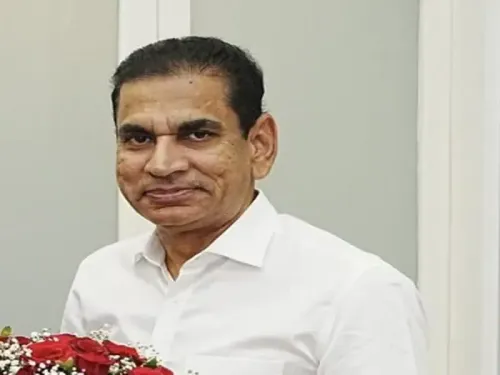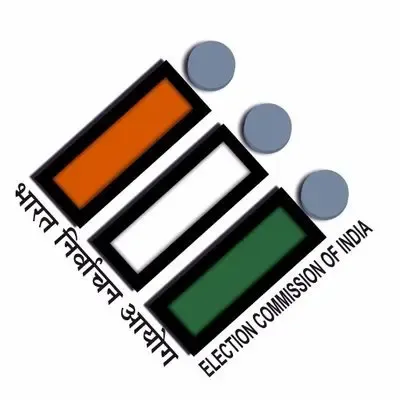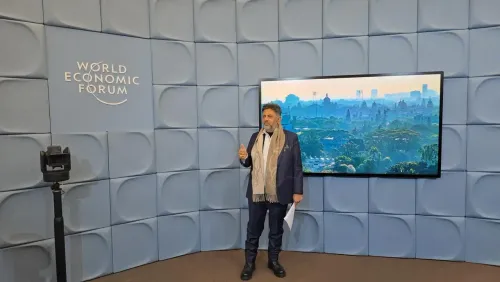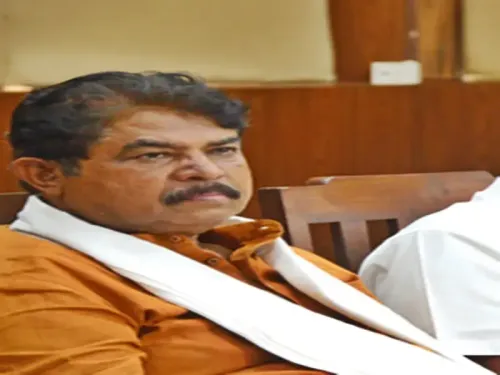Will the Supreme Court Force the Centre to Decide on 'Udaipur Files' Certification?
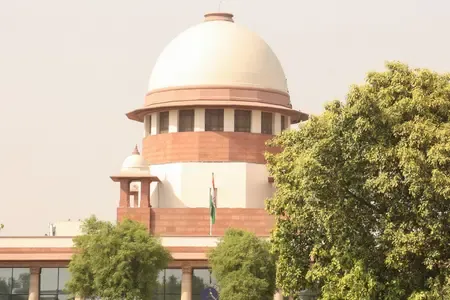
Synopsis
Key Takeaways
- The Supreme Court has requested the Centre to make a timely decision on the 'Udaipur Files' certification.
- Concerns exist regarding the film's potential impact on ongoing legal proceedings.
- Section 6 of the Cinematograph Act empowers the Centre to take decisive actions regarding film certifications.
- The film details the brutal murder of Kanhaiya Lal, raising sensitive community issues.
- The situation reflects ongoing tensions between artistic freedom and legal considerations.
New Delhi, July 16 (NationPress) The Supreme Court has directed the Centre to promptly address the revision petitions challenging the CBFC certification of the film 'Udaipur Files'.
A Bench comprising Justices Surya Kant and Joymala Bagchi was reviewing a plea from film producer Amit Johnny, who contested the Delhi High Court's ruling that had temporarily blocked the film's release, which centers on the Kanhaiya Lal murder incident.
During a succinct hearing, the Justice Kant-led Bench urged the committee formed by the Centre under Section 6 of the Cinematograph Act to resolve the revision applications without delay.
Section 6 grants the Centre the authority to classify a film as uncertified or issue interim orders, such as suspending its public display.
The case was adjourned until July 21, with the Supreme Court stating, “We can afford to wait a little longer. We have been informed that a committee has been established, and the Union government is assessing the situation. Should the Union determine that the film poses no issues, we will consider that. Conversely, if they suggest edits, we will review those as well. The scenario would be different if the Centre was inactive on this matter.”
The film narrates the harrowing murder of Kanhaiya Lal, a tailor in Udaipur, Rajasthan, who was killed in June 2022 by Mohammad Riyaz Attari and Ghaus Mohammad by slitting his throat.
One of the individuals accused in this case, Javed, has submitted a writ petition to the Supreme Court, requesting a halt to the release of 'Udaipur Files', arguing that its release could compromise the ongoing trial proceedings at the Special NIA court.
Just a day prior to its planned release, the Delhi High Court issued a ruling on July 10, temporarily suspending the film's release until the Centre resolves the revision petitions disputing the CBFC certification.
A Bench led by Chief Justice D.K. Upadhyaya and Justice Anish Dayal examined a series of petitions, including one from Maulana Arshad Madani, President of the Islamic clerics' organization Jamiat Ulema-i-Hind, seeking to annul the CBFC certification granted to the film.
According to Madani's petition, the certification violated Section 5B of the Cinematograph Act, 1952, and the Guidelines for Film Certification, as the film's release could potentially escalate communal discord and disrupt public order, threatening the nation's religious harmony.
The Chief Justice Upadhyaya-led Bench has granted permission for petitioners and the public to file revision petitions with the Union government under Section 6 of the Cinematograph Act within two days.
The Delhi High Court has instructed the Centre to resolve these revision petitions within a week, ensuring that the producer has the opportunity to be heard.
Additionally, it mandated that any requests for interim relief will also be evaluated and determined.


